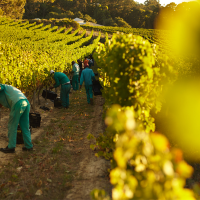Janine Brodie, a Trudeau Fellow, gave a thought-provoking ‘big thinking’ lecture at the 2012 Congress of Humanities and Social Sciences in Waterloo, entitled, Social Literacy and Social Justice in Times of Crisis. Her lecture was a brilliant political analysis of the current trends affecting Canadian society, with a rich history of critical role of the social sciences. I am going to quote liberally from her paper, to share some of her critical insights into our present economic and social trajectory, and I strongly encourage you to read the entire paper.
The present global economic crisis denies the next generation the promise of social mobility, which is so critical to the implicit social contract of liberal democracies (p. 4)
The 2011 OECD report reminds member countries that income redistribution is “at the core of responsible government” (p. 8).
In his 1931 book, Inequality, Tawney argues that democracy is an inherently unstable form of government unless it is also committed to the elimination of all forms of privilege and to the taming of economic power (1931: 30) (p. 10).
The social sciences challenged hierarchy, fatalism and ignorance, and generated new ways of thinking about the possibilities of democratic governance (Delanty, 1997: 25) (p.10). The social in social literacy is irreducibly relational, emphasizing our mutual interdependence while literacy refers to proficiency in a particular way of seeing and understanding (p. 12).
Can we really comes to grips with our uncertain world without first interrogating the profoundly anti-social instincts of market-driven governance that have informed our politics and our daily lives for more than a generation (p. 15)?
Between 1980 and 2009, the market incomes of the top 20% of earners in Canada increased by 38%, remained stagnant for the middle 20%, and dropped by 11% for the bottom 20%. In the decade between 1997 and 2007, the top 1% took 32% of all income growth (CCPA, 2012) (p. 19).
Nothing has trickled down, except perhaps insecurity and uncertainty (p. 19).
It is far easier to change the subject or shoot the messenger: in short, to manufacture social illiteracy. . .Typically junk politics breeds contempt for experts and science and asserts stark divisions between taxpayers and freeloaders, immigrants and native born, public workers and private workers, and criminals and victims (DeMott, 2003; Himmelfarb, 2011:6) (pp. 20-12).
In Canada, we see the production of social illiteracy in the staging of horizontal antagonisms, the silencing of equity-seeking groups, and the suppression of social knowledge. The dismantling of equity-seeking and environmental groups is another vector in the active production of social illiteracy in contemporary Canada (p. 21-22).
How can we [social scientists] inform Canadians about changing social needs or contribute to evidence-based policy-making with outdated and insufficient information?
- Log in to post comments



CRC Comments